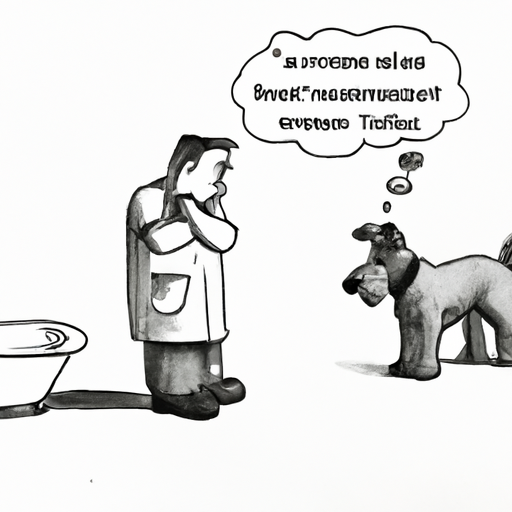Introduction
You’ve noticed something concerning about your furry friend – a swollen rear. As a devoted caregiver, you’re understandably worried. This article will guide you through possible causes, treatments, and when to seek professional help.
Common Causes of Swelling
Let’s start with some of the common causes of a swollen butt in dogs:
- Anal Gland Issues: Your dog has two small glands located on either side of their anus. These glands can become impacted, infected, or abscessed, leading to noticeable swelling.
- Parasites: Fleas, ticks, and worms can cause irritation and inflammation around the anus, leading to swelling.
- Allergies: Just like humans, dogs can develop allergies to certain foods, plants, or chemicals, causing skin irritation and swelling.
- Injury: If your dog has recently had a traumatic event like a fall or fight, swelling could be a result of bruising or other injuries.
Symptoms to Watch For
Besides the obvious swelling, here are other symptoms you should watch for:
- Excessive licking or chewing at the rear
- Difficulty sitting or lying down
- Blood or pus from the anus
- Diarrhea or constipation
- Loss of appetite
Treatment Options
The treatment depends on the cause of the swelling:
- Anal Gland Issues: A veterinarian can manually express the glands, provide antibiotics for infections, or recommend surgery for severe cases.
- Parasites: Anti-parasitic medications can eliminate the problem.
- Allergies: Identifying and removing the allergen is essential, and your vet may prescribe anti-inflammatory medications.
- Injury: Rest, pain medication, and monitoring for infection are usually recommended.
When to See a Vet
While some swelling may resolve on its own, it’s always best to err on the side of caution. Any persistent swelling, or swelling accompanied by other symptoms, warrants a visit to your trusted vet.
FAQs
Q: Can I treat my dog’s swollen butt at home?
A: While some minor swelling may resolve on its own, it’s always best to consult a vet if you’re unsure.
Q: How can I prevent my dog from getting a swollen butt?
A: Regular grooming, a balanced diet, and routine vet check-ups can help prevent many common causes of swelling.
Q: How long does it take for swelling to go down?
A: This depends on the cause and treatment. Your vet can provide a more accurate timeline.
Remember, as a caregiver, your role is to ensure the comfort and health of your pet. Never hesitate to reach out to a professional when you’re in doubt. Your furry friend is depending on you!



